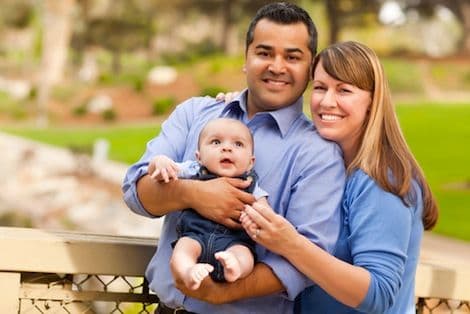Netflix: Unlimited Family Leave During Baby's First Year
Pregnancy News
Obie Editorial Team

Netflix wants to change the way you watch TV and the company’s executive staff knows that kind of change requires hiring and retaining the top talent in the industry. One way the company lures the industry’s best people is by offering unlimited time off. A new company policy, announced on August 4, ups the game even more. It offers all new parents as much as a year of paid unlimited time off following the birth or adoption of a child.
At any time during the year or when baby’s first year ends, moms and dads can return to work in whatever capacity that best meets the individual family’s needs: part-time, full-time, or a temporary return to work followed by more time off later. In her company-wide blog post announcing the new maternity and paternity leave policy, Tawni Cranz, Chief Talent Officer for Netflix, wrote: “We want employees to have the flexibility and confidence to balance the needs of their growing families without worrying about work or finances.”
Cranz adds acknowledgment that the company’s “continued success hinges on us competing for and keeping the most talented individuals in their field. Experience shows people perform better at work when they’re not worrying about home.”
Parental Leave in the US
Parental leave is a growing concern around the world, as medical and scientific data increasingly documents the life-long value of parent-child bonding during the first year of a baby’s life. The United States, however, falls far behind most of the rest of the developed world in how parenting and job retention are handled.
The Family and Medical Leave Act (FMLA) of 1993 requires certain companies to allow as much as 12 weeks off work after childbirth or adoption. This policy is based on company size (number of full-time employees), applies only to full-time workers, and the 12-week family leave comes without pay. The parent’s job is protected during the leave period, though. According to the Center for American Progress, only about 12% of all working Americans qualify for job protection under FMLA.
Parental Leave Around the World
Croatia offers its employees the most generous maternity leave, with 406 days at full pay to care for a newly born or adopted child. Albania, Bosnia and Herzegovina, Montenegro, Serbia, and the UK allow a full year of paid maternity leave. Australia allows a year but without pay.
The US falls in the worst 10 nations for maternity leave, according to Citation, a UK-based company that provides legal, health, safety, and human resources solutions. Africa’s Lesotho and Swaziland both offer 84 days (12 weeks) of unpaid leave, just as the US does. Tunisia ranks at the bottom of the list, with only 30 days leave, with pay, for new moms.
Iceland tops the list for paternity leave, offering new fathers up to 91 days paid leave.
Parental Leave in Silicon Valley
The Silicon Valley hub of the tech industry, where Netflix is headquartered, is famous for its innovative workplace culture. Its progressive parenting policies far exceed the protections offered by federal and state governments:
- Twitter: 20 weeks paid maternity leave, 10 weeks paid paternity leave.
- Facebook: Moms and dads get up to four months of paid leave; every newborn and newly adopted child gets a $4,000 bonus, daycare is subsidized, and all employees can take advantage of sperm donation, egg freezing, and surrogate parenting programs offered by the company.
- Google: 18 weeks paid maternity leave plus 12 weeks “paid baby bonding time” for either parent who is the primary caregiver or shares an equal parenting role with the other parent.
Google extended maternity leave from 12 weeks to 18 in 2007 and discovered that the extended leave encouraged twice as many mothers to return to work than were returning after just 12 weeks leave.
Sources:
- Cranz, Tawni. "Starting Now at Netflix: Unlimited Maternity and Paternity Leave." Netflix US & Canada Blog. Netflix, Inc., 4 Aug. 2015. Web. 13 Aug. 2015.
- Steel, Emily. "Netflix Offers Expanded Maternity and Paternity Leave." The New York Times. The New York Times Company, 4 Aug. 2015. Web. 13 Aug. 2015.
- Adams, Rebecca. "Chart Of Parental Leave Around The World Shows Depressing Truth About The U.S." HuffPost Parents. TheHuffingtonPost.com, Inc., 14 Jan. 2015. Web. 13 Aug. 2015.







